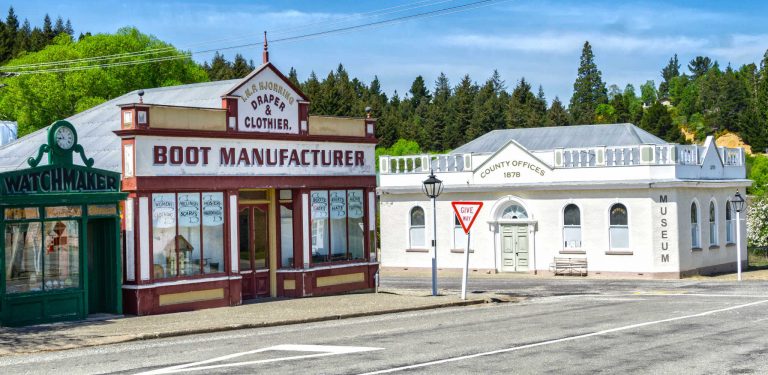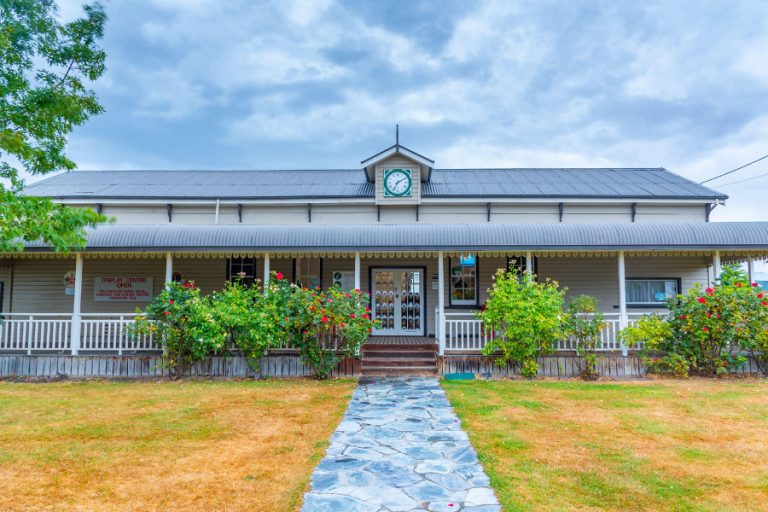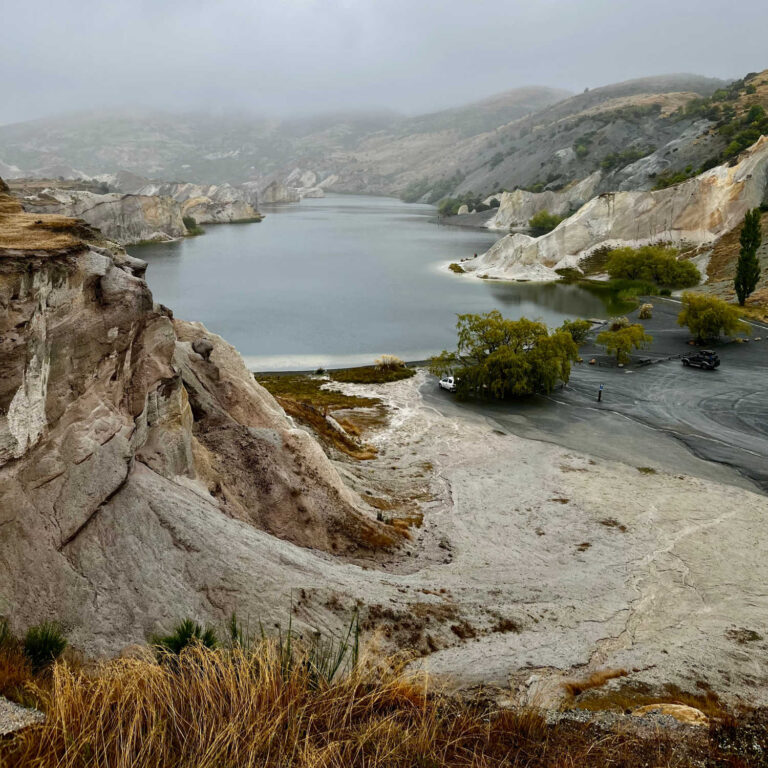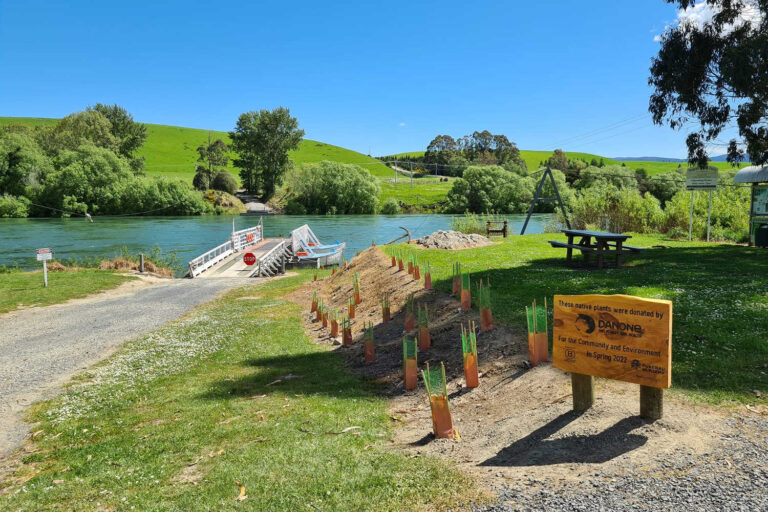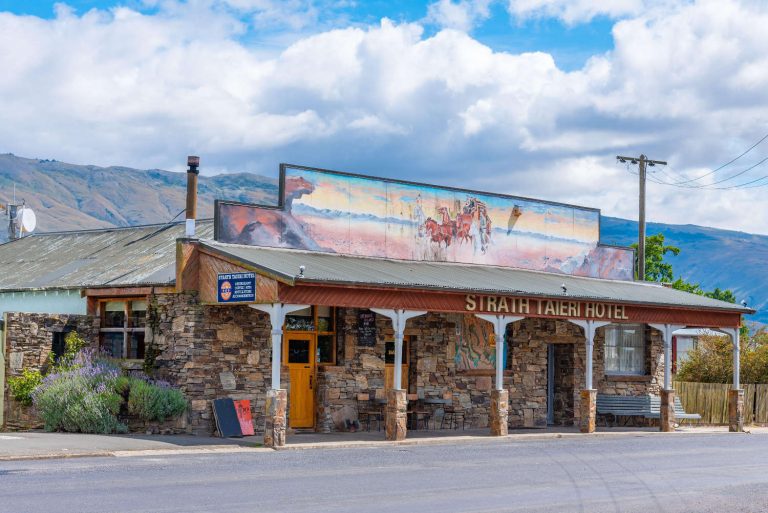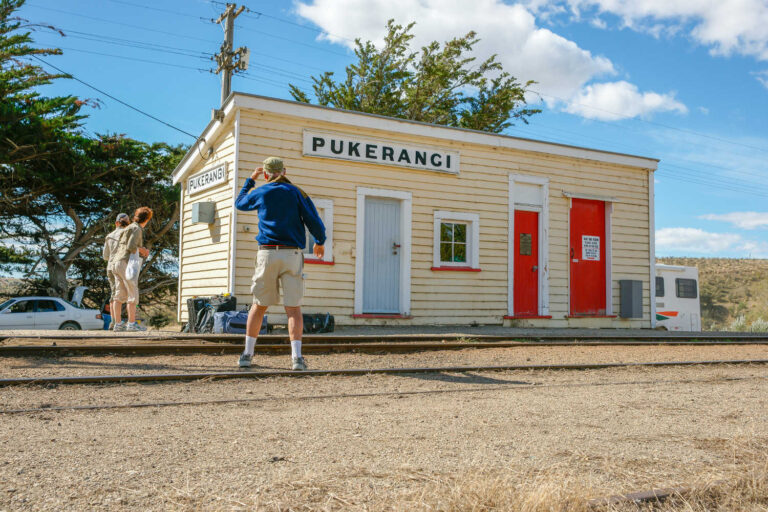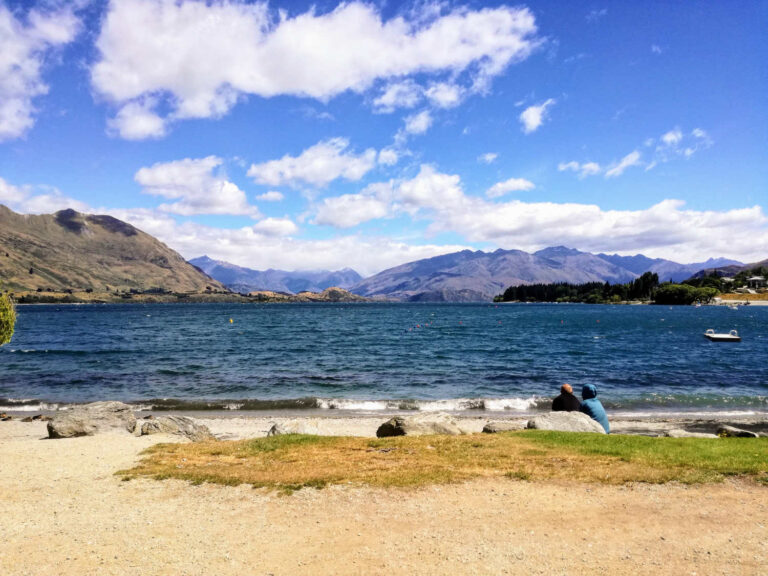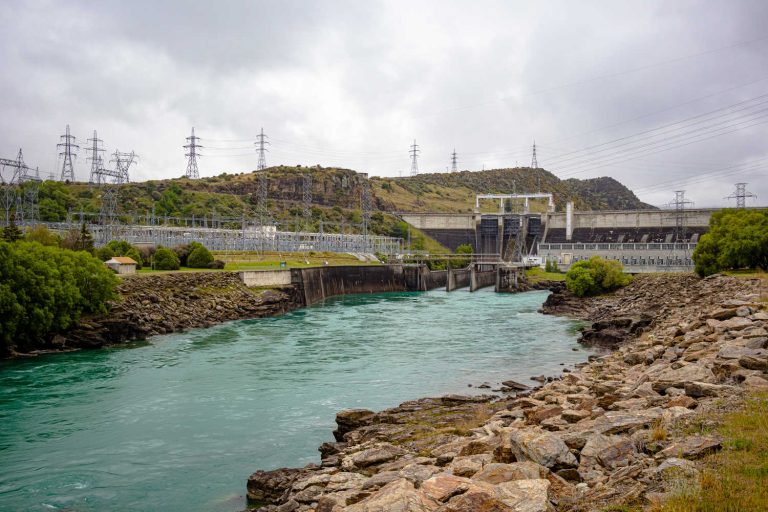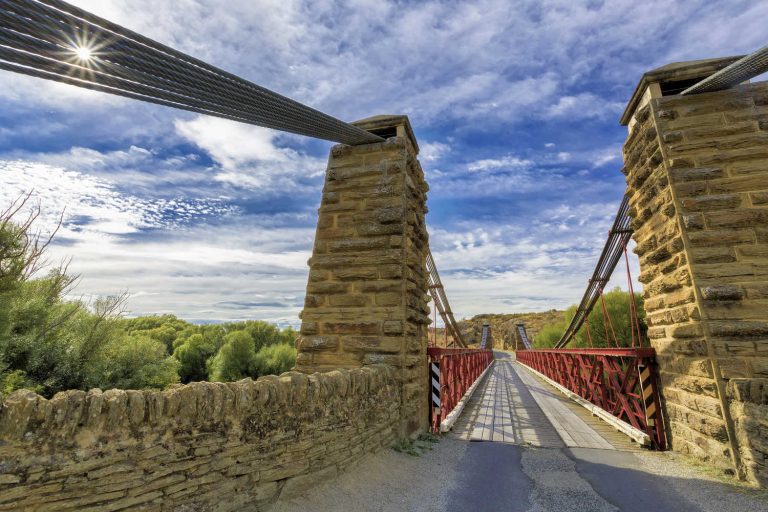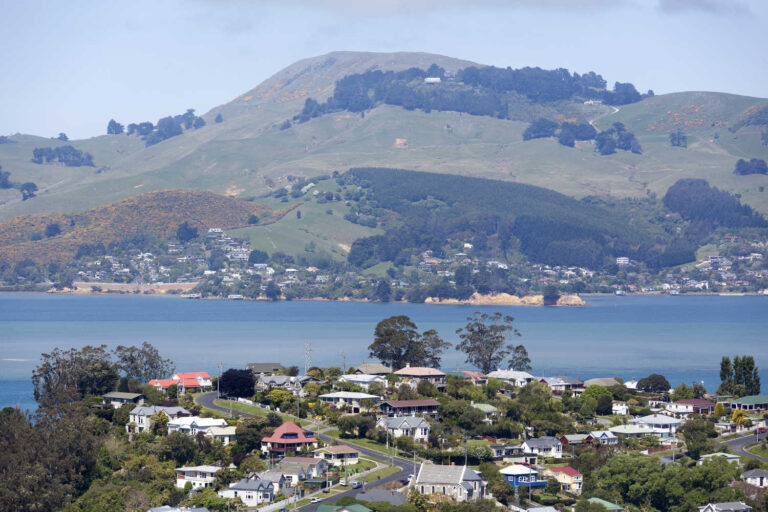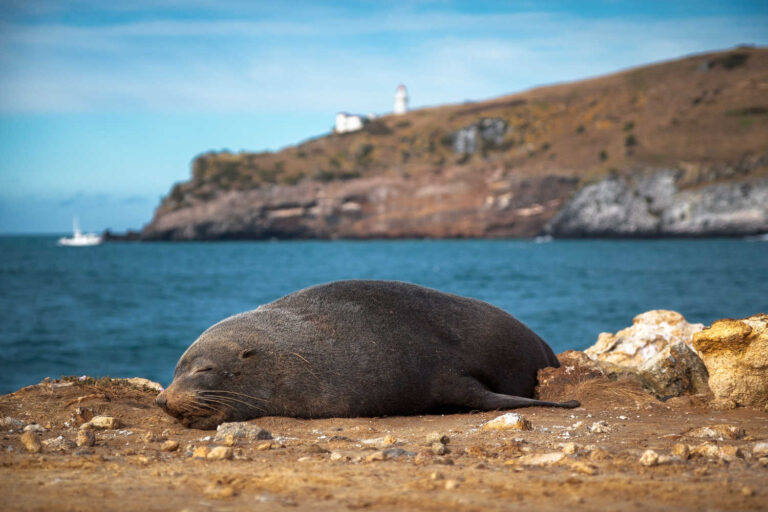Maniototo region, Clutha river and Central Otago are synonymous with the holiday spirit
Clyde there are plenty of things to do. Explore the historic buildings, precinct and two museums. Linger in the boutique shops showcasing local merino wool and yarns, art, homeware, jewellery, wine and artisan goods. The cycling trails, Otago Central Rail Trail or Roxburgh Gorge Trail are but two tempting ways to explore the landscapes. Wine trails based around single origin estates culminating in Easter Eat & Taste Festivals. There are walks up and around the very large concrete dam above the town with the newly created Lake Dunstan now a popular place for kayaking, swimming and boating year round.
BEST TIME TO VISIT CLYDE
Year round, winter snowfields a close drive away and then there is the glory of Central Otago dusted with snow, a photographer’s delight
Peak season is late spring to late summer.
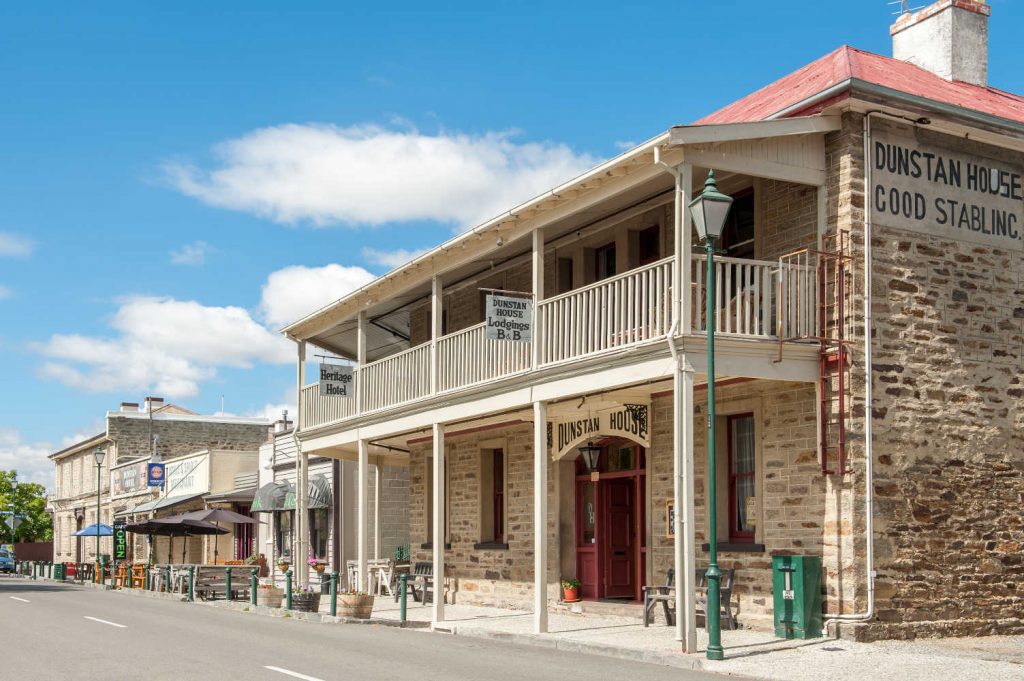
WHAT TO DO IN CLYDE, HIGHLIGHTS
- Award winning wineries, foodie destinations where farm to plate is a given
- Nineteenth century streetscape heritage precinct where buildings are repurposed into cafes, stores and museums
- Walk or cycle among the extraordinarily beautiful Central Otago landscape
- Cruise the Clutha River with a local on a customised comfortable pontoon
- Visit a hydroelectric dam lookout and imagine the steep rugged roads forever flooded
- Explore Clyde’s rich gold mining heritage in the two town museums
There is an enduring interest in the passion, the gold fever rush and the stories of heroism, swagger and stoicism continue to capture visitor’s imagination. Clyde, with its authentic colonial architecture exemplifies the dreams of the Dunstan gold rush. Clyde is nestled in a protected basin at the beginning of an immense gorge (now Lake Dunstan). Clyde was a reliable resting spot before the rigours of interior Central Otago gold mining trails were tackled. Today visitors can experience this journey.
Clutha River Cruises is a slow immersive journey on the mighty Clutha River exploring areas not readily accessible by road. Butchers and Doctors Point with their buildings, sluiced hillsides and wildflowers tell the story of European and Chinese gold mining prospectors. It is a comfortable stable river exploration.
Lookout points in Clyde
- Check travel pack information section for walks around Clyde
Clyde Museums
- Blyth Street Museum specialises in memorabilia from early settlers, family histories, photographs and gold mining relics
- Clyde Railway Station Museum is home to heritage transport equipment, a bicycle repair business
Opening hours – managed by volunteers check below for details
Phone: +6434492571
Email: clydemuseum@gmail.com
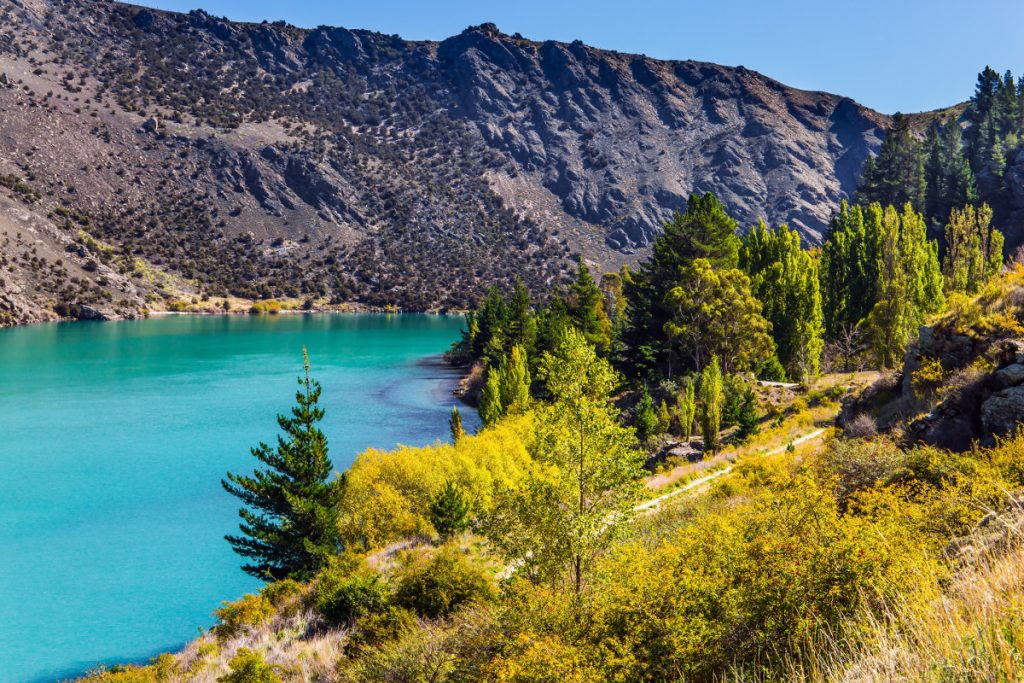
WHERE TO TAKE THE BEST SELFIE IN CLYDE
- Lake Dunstan lookout
- Local vineyard cellar door
- Pick your favourite heritage building as a backdrop
WHAT TO DO WITH KIDS IN CLYDE
- An energetic walk to a lookout point where the electricity company has an excellent information plaque describing the process of dam building and the benefits of renewable energy
- A 4WD safari with Maniototo Safaris. This is an alternative option to the leisurely river cruise. The kids get to bounce on unformed roads, the exhilaration of exploration and understand the difficulties facing gold prospectors as they trudged through the harsh terrain.
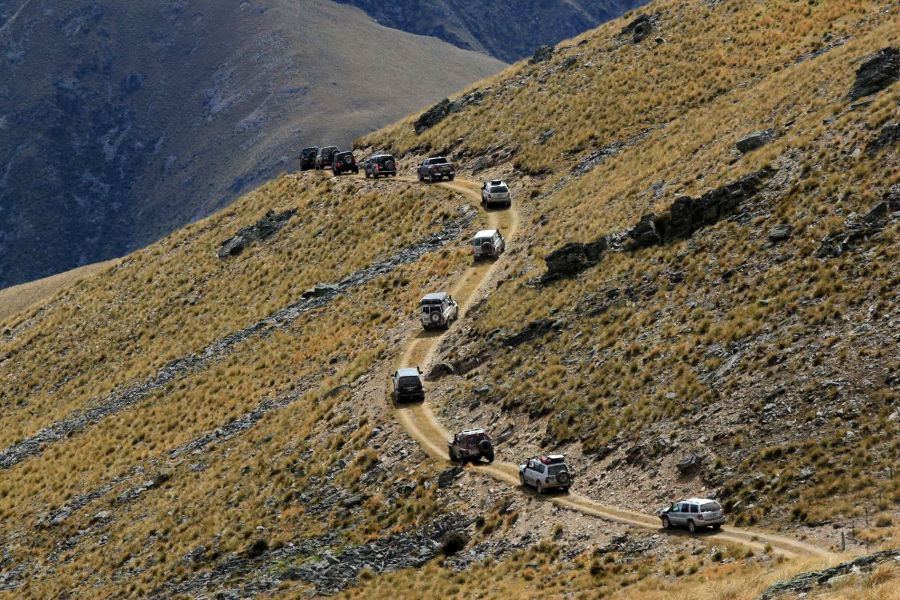
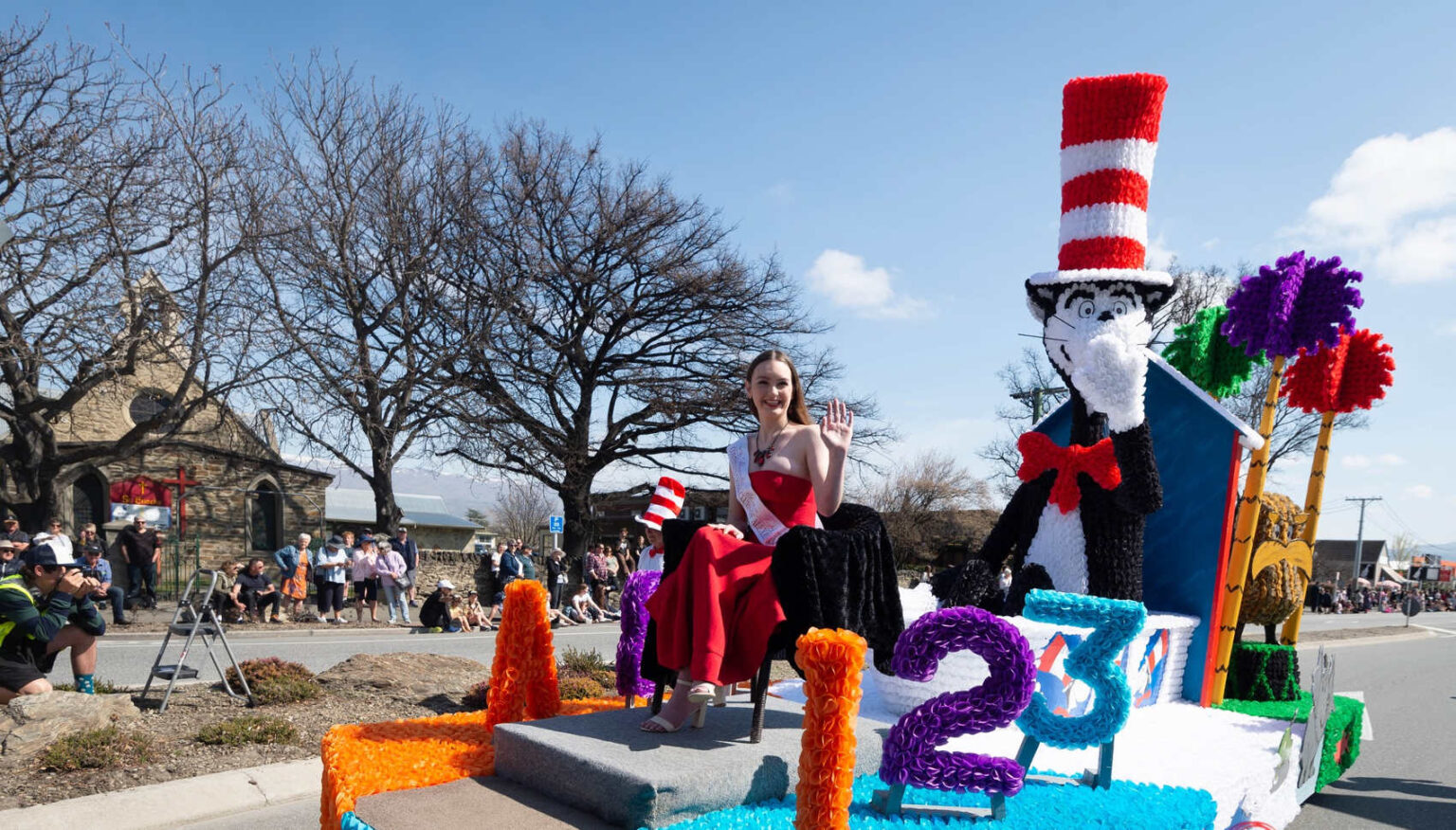
FESTIVALS IN CLYDE
- Clyde Wine and Food Harvest Festival
- September Clyde/Alexandra district hosts a Blossom Festival
- Eat.Taste.Central – A Central Otago Regional Menu, Clyde is definitely not to be missed
CLYDE’S SOCIAL MEDIA
WHO TURNED UP AND NAMED CLYDE?
Originally Central Otago, severe, stark rocky hills did not encourage Maori settlement. Maori seasonal paths followed the Matau-Au/Clutha River inland seeking food resources and the riches of the West Coast.
Lord Clyde, Sir Colin Campbell, hero of the Crimea and Indian Mutiny is commemorated with the naming of Clyde in 1865. Originally known as Dunstan. Gold rush fever meant, for a short period of time, Clyde was the most populated town in New Zealand. Plenty of drinking establishments, the Dunstan and Hartley Arms among them. The town was known for its rowdy behaviour, prostitutes and quick rich schemes.
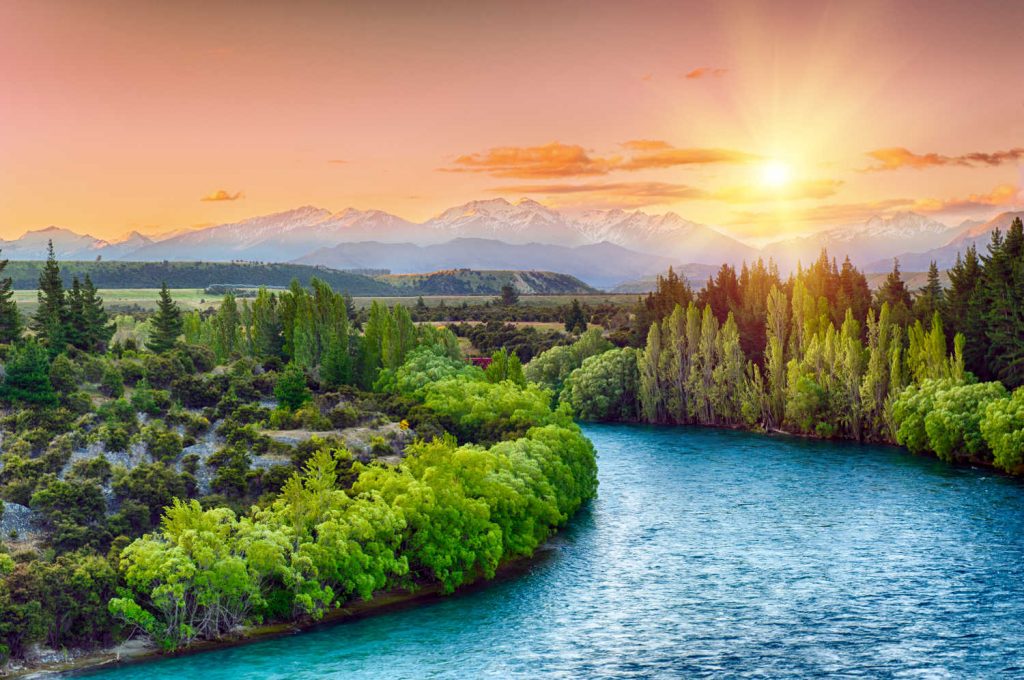

The Clutha River is the swiftest river (per volume) in the southern hemisphere. The river then runs to the Roxburgh Dam before flowing into the sea at Balclutha.
Getting to Clyde
It is located on the Clutha River, between Cromwell and Alexandra. The area is known as Maniototo district.
TRAVEL PACK INFORMATION
Every town adds to the richness of things to do and see. For more details about the region check Dunedin & Otago Region nearby attractions and events.
From promo Dunstan, ‘The annual Clyde Wine and Food Harvest Festival is held on Easter Sunday each year in the main street of Clyde in Central Otago. Clyde is one of New Zealand’s historic towns dating from the 1862 Dunstan gold rush.
The festival celebrates wines made in Central Otago, the most southerly wine producing region in the world. It is Otago’s biggest wine event and has established itself as a major wine festival in New Zealand, attracting thousands of visitors. Part of its charm is the location. The festival is held in Clyde’s historic precinct which has many of its original schist stone buildings dating back to the 1860s. It is surrounded by the stunning Central Otago scenery of schist rock hills and mountains.’
BEST BITS TRAVEL GUIDE


